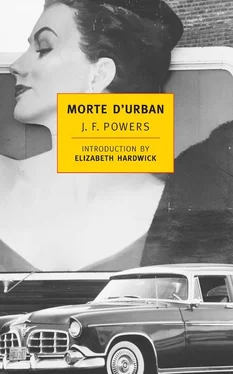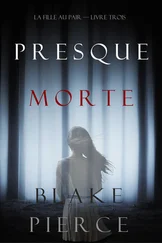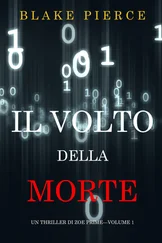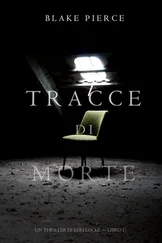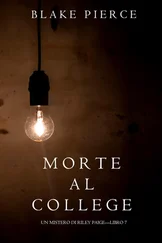Next Father Urban was shown into the refectory, which was comfortably warm, and might have been a very pleasant room. The high wainscoting need not be varnished like old office furniture, and the view from the alcove could be improved by setting out a few evergreens — and by replacing a pane of glass now cracked and fitted with a metal disc such as Father Urban had last seen on the bottom of a pot when he was young. There were two tables. Father Urban put clergy at the round one in the alcove, laity at the long one on the windowless side of the room. Both tables were covered with plastic, white becoming ivory, not very appetizing. Against one wall there was an old console radio, a “Majestic,” he saw when he went over to it, and remembered the once famous words, “mighty monarch of the air.” In the center of the room were three of the green rockers, the seats of these fitted with chunks of foam rubber; an overloaded magazine rack; and a heavy-duty stainless-steel smoking stand — a hotel-lobby or club-car model, with a trapdoor top and a deep tank that seldom if ever needed emptying. There was a tray for glasses around the top of the smoking stand, and on the tray a dish of horehound drops. Father Urban helped himself to one.
Wilf, who had gone into the kitchen, now returned with a corpulent young man clad in khaki coveralls and introduced him to Father Urban. “Brother Harold, Father. My good right hand.”
Father Urban couldn’t recall Brother Harold from anywhere. He looked quite intelligent, though, and this wasn’t always the case with lay brothers in the Order of St Clement.
“As a rule, we have our principal meal in the evening,” Wilf said, “but Brother, here, wants to depart from the usual today.”
“Not on my account, I hope.”
“Come, see,” said Brother Harold.
Intelligent, yes, and light on his feet for a fat man but perhaps a bit feminine. Father Urban followed Wilf and Brother Harold into the kitchen. In the sink lay a big frozen fish, a vicious-looking thing marked like a snake. “Sturgeon?”
“No, that’s your northern pike,” Wilf said.
“Won’t it be quite a job?” Father Urban said to Brother Harold who only smiled.
“Brother, here, is used to it.”
“I mean — won’t it take a while?” Father Urban had breakfasted early.
“Yes, but it’ll be worth it,” Wilf said. “We’ll just leave everything to Brother.”
In the refectory, Father Urban had another horehound drop. “Where’s Jack?” he asked Wilf.
“Not here at the moment. I sent him out the same day he arrived. Place about sixty miles from here. Pastor I hadn’t heard from before. With things the way they are, I try to be accommodating.”
“How are things?”
“Pretty good, on the whole.”
“I suppose you told Jack I was coming.”
“Did I? No, I don’t think so. We didn’t have a minute together. I sent him right out.”
It did seem to Father Urban that Wilf might have found time to tell Jack. “And when’s he coming back?”
“I’m expecting him back on the evening train — in time for a little powwow.”
Wilf took Father Urban to the office then. “You might care to familiarize yourself with that,” he said, and waved Father Urban away from desk, over to the wall where there was a crude plan of the house. Then he covered the clutter of papers and photographs on the desk with a newspaper. “Find your room yet? Your name’s on it. Here you are. Southern exposure.”
“How’s the place to heat?”
“Oh, it all depends. Of course, I’m not heating the whole house at present.”
“Coal or oil?”
“Oil. Furnace converted before I came. That was one thing I didn’t have to do.” Wilf moved over to a bookcase, one shelf of which had been partitioned off into cubbyholes. “Where you get your mail. See — your box has your name on it.” Wilf felt inside the box. “Nothing in it yet,” he said. From one of the other cubbyholes — one labeled PASSES — he removed a card in a clear plastic protector and handed it to Father Urban.
“How’d you manage this?”
“President of the railroad is a friend of ours.”
“Is that so?”
“Father Louis knew him. At least he once rode with him.”
“Good man, Louis.”
Wilf didn’t pick up on this. “It’d be nice if we could get another pass,” he said. “We just have the two at present. They don’t like it down at the station, of course. Loss of revenue for them. But with us here, attracting visitors from all over, they’ll be the winners in the end.”
“I sensed something today.”
“Was something said?”
“Oh no. I just got the impression I wasn’t very welcome.”
“Wacker. He’s the worst. But be that as it may. Telephone, typewriter, stationery, both paper and envelopes — all here, and feel free to use ’em.”
Leaving the office, they went down the corridor that ran straight back from the front door, on their right the chapel, on their left a series of rooms. “Parlor,” Wilf said, rapping the first door and passing on. “Not heated at present. Another,” he said, rapping on the next door. Signs on these doors said PARLOR A and PARLOR B. The next door, which was the last, said LIBRARY, and this they entered. Here, too, it was cold enough for Father Urban to see his breath before him. On the walls were pictures of popes, Cardinal Newman and Cardinal Spellman, Archbishop Ireland of St Paul (who had been jobbed out of the red hat in Rome), St Clement of Blois (as he may have appeared), and several bishops. Father Urban recognized all but one of these and asked Wilf about that one. Bishop Dullinger, of the neighboring diocese of Ostergothenburg, Wilf said. “Over here, our bishop.”
“Yes, I know,” said Father Urban. The face of Monsignor Conor, now, and for many years, bishop of Great Plains, had once been a feature of the diocesan press in Chicago.
“It badly needs cataloguing,” Wilf said, with a flourish of his hand, taking in perhaps a thousand volumes.
“Nothing very recent, is there?”
“No money for books, Father. What you see here was given to us.”
Father Urban could believe it. He didn’t know which he found harder to take, the whining or the bragging. Why talk of cataloguing this rubbish? Why call the thing parked out-side transportation? Wilf, it seemed, was trying to do it all with words and signs, and, yes, even in the library — rocking chairs.
Leaving the library, they went up the back stairway and emerged into a large space (“not being heated at the moment”) that Wilf called the Rec Room: ping-pong table with a dirty piece of canvas over it (“drop cloth”), paper half off the walls (“be surprised how hard it is to get off”), tools lying around on the floor. “Formerly two rooms. Quite a job taking that wall out.”
Father Urban looked up at the ceiling. The wall had been yanked out like a tooth, the gap crudely plastered over, and now, presumably, was expected to heal itself. Letters from Father Louis, and rumor, had prepared Father Urban for such sights.
“More than we bargained for,” said Wilf.
“I daresay.”
“But well worth it. Now retreatants will have a place to go in their free time. (We don’t try to enforce total silence here.) And in the event of an overflow crowd, why, we’ll just bring in some folding chairs and pipe the conferences up from downstairs — you realize we’re standing right over the chapel, don’t you?”
“Own a public-address system, do you?”
“Not at present, no.”
Father Urban had suspected as much. “A good one costs like hell, you know, and there’s no use having any other kind.”
“Wonder if we couldn’t pick up a good one secondhand?”
Читать дальше
